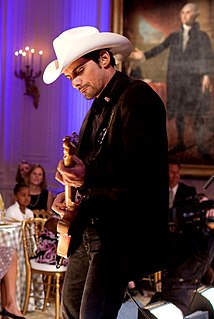A Quote by Richard Belzer
I used to think of it as a joke that all paranoids were right. That was a joke in the '60s, but now I'm convinced that people should be paranoid reflexively - and then pare it down from there if there's any indication that they're wrong.
Related Quotes
Often, when you're in some of these writing rooms for... and the most restrictive is network television, right? They say, 'Wow, that's a great joke, but we can't do that. Okay, let's try the second joke. Oh, you can't do that one. But the third joke you can do,' and hopefully it will be great, but it will remind people of what the joke really was.
If you give a little credit to the concept of the artist, I think you ought to indulge excesses a bit, because that reflects the personality of the writer. Now if a joke is in bad taste or it's not funny, okay, that's awhole different thing, but how you craft a joke is really what the writer's job is, and I don't think that technique should be subject to any editorial constraints.
It's when I make a joke about Indian people and then a white person comes up to me and says, "That's wrong. You should not talk about Indian people," and the Indian people are over in the audience like, "I thought that joke was hilarious." That is so weird. Then why are you getting mad? You're burning unnecessary calories. You're getting made for the sake of getting mad. I don't understand it.
'Always speak the truth - think before you speak - and write it down afterwards.'
'I'm sure I didn't mean - ' Alice was beginning, but the Red Queen interrupted her impatiently.
'That's just what I complain of! You should have meant! What do you suppose is the use of child without any meaning? Even a joke should have some meaning - and a child's more important than a joke, I hope.
I keep on repeating something told to me by an American psychologist: "When you are making a joke about someone and you are the only one to laugh, it is not a joke. It is a joke only for yourself." If people are making a joke they have the right to laugh at me but I will ignore them. Ignoring doesn't mean that you don't understand. You understand it so much that you don't want to react.
































